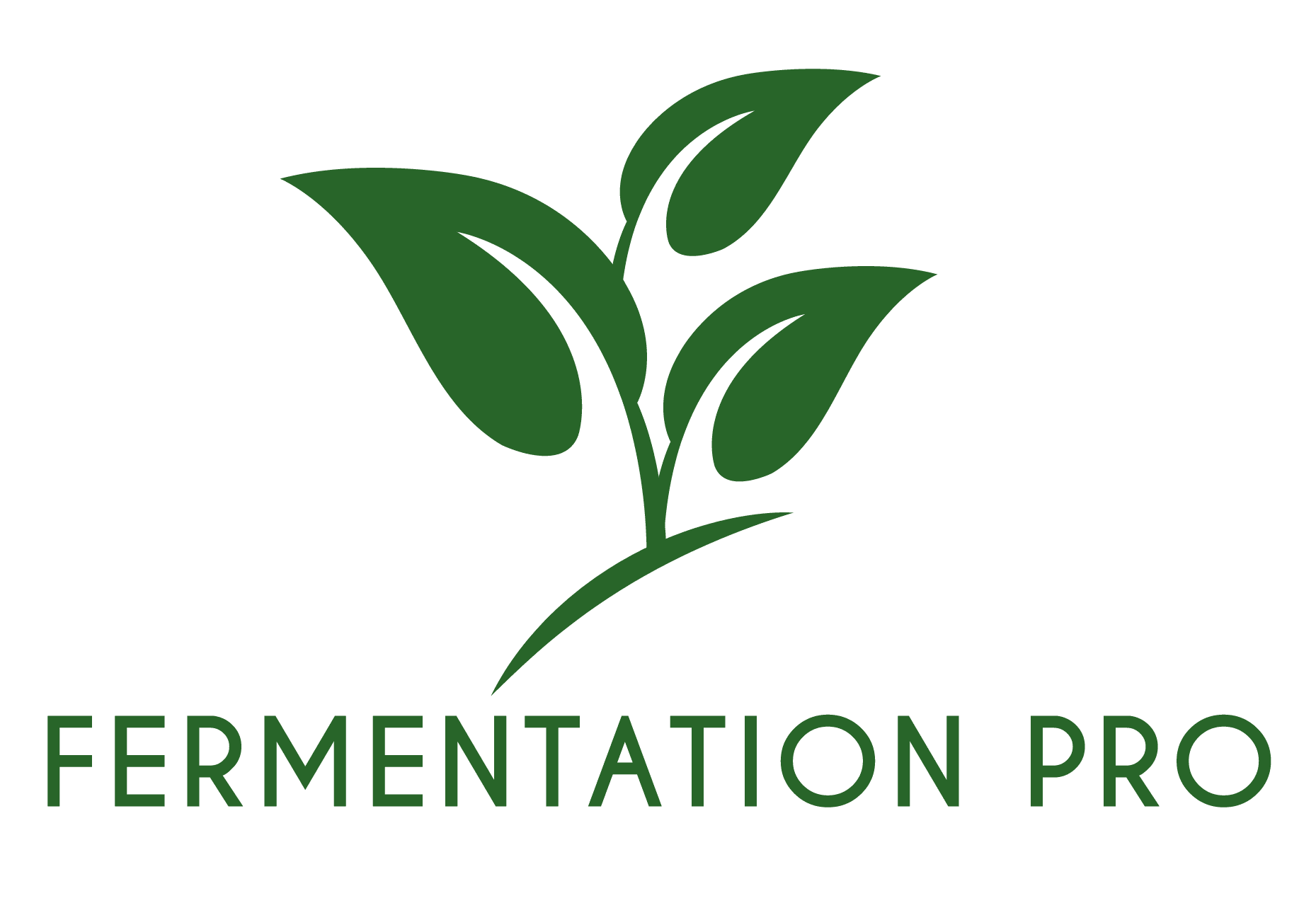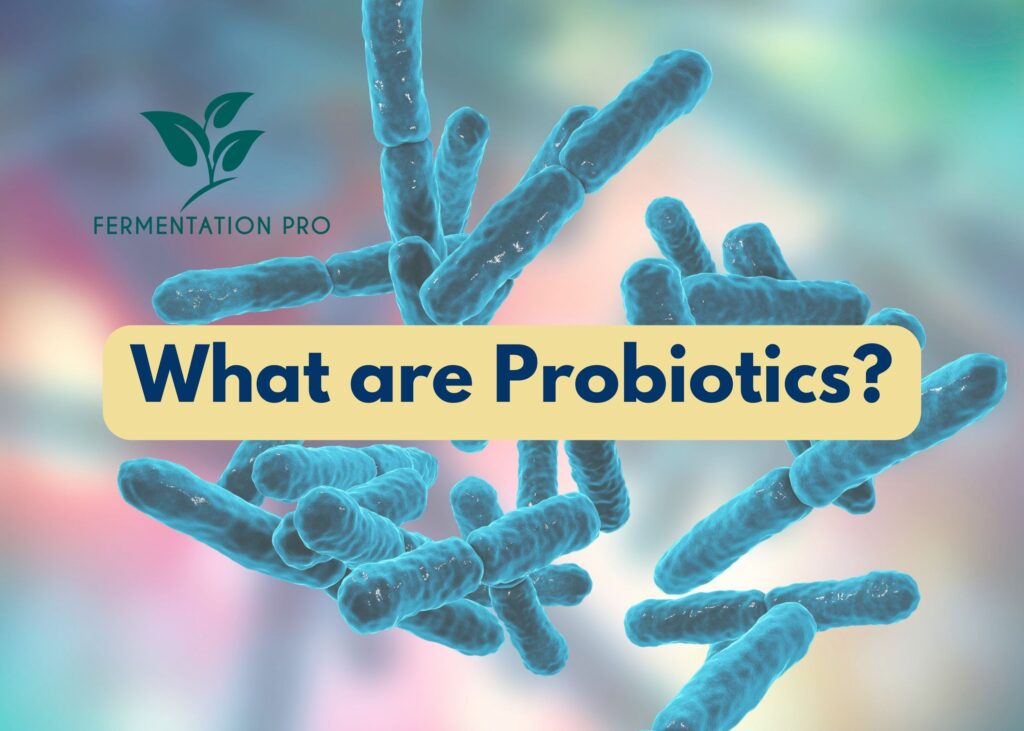Taking probiotics whenever you are struggling with digestive issues is a no-brainer. Probiotics have been widely known for their benefits in relieving symptoms of digestive concerns like gas, bloating, pain, and diarrhea. Apart from this, probiotics have been linked to improving overall health and wellness. While it is no secret what probiotics can do, not many know what exactly they are. If you are wondering, what are probiotics? Here’s the answer.
Probiotics are strains of microorganisms specifically bacteria and yeast that live in the gut and aid digestive health. They are often simply referred to as good bacteria or live bacteria and are often found in many kinds of food particularly fermented food and drinks like yogurt, Kombucha, Kimchi, and more. Apart from fermented foods, some supplements and vitamins also contain probiotics.
The word “probiotics” was derived from the Latin word “pro” which means for and the Greek word “bio” which translates to life. In addition to aiding digestive health, they are also known to fight off disease-causing microorganisms or pathogens, produce nutrients and vitamins, and boost the immune system.
Table of Contents
What Does Probiotics Do for Your Body?
Believe it or not, there are many things that probiotics do for the body. First of all, these gut-friendly bacteria fight off bad bacteria that may affect health and maintain the balance of bacteria in the gut flora. Without the right balance of bacteria, the body may suffer from inflammation and other health concerns.
Drinking probiotics also replaces the lost good bacteria in the body due to poor diet and lifestyle. Some common causes of lost probiotics are poor sleep quality, alcohol consumption, and inactivity. Besides these, taking antibiotics also causes harm to the probiotics in the body. While it is no doubt that antibiotics are effective in preventing infections, they can’t target specific strains of bacteria. Antibiotics not only eliminate disease-causing bacteria but also good bacteria.
Health Benefits of Probiotics

Moreover, probiotics help in reducing the symptoms of various conditions, particularly in the digestive system. These include:
- Constipation
- Diarrhea
- Abdominal pain
- Excessive gas
- Bloating
According to webmd.com, probiotics may also help serious digestive issues like:
- Irritable Bowel Syndrome (IBS)
- Inflammatory Bowel Disease (IBD)
- Infectious diarrhea caused by viruses, bacteria, or parasites
- Diarrhea caused by antibiotics
In addition to helping with digestive issues, probiotics are also linked to many health benefits. Below we have listed some of these benefits one by one.
- Helps relieve fatigue
- Improves heart health
- Reduces the severity of some allergies like eczema
- Boosts immune system
- Encourages weight loss
- Improves certain mental health conditions
- Maintains urinary and vaginal health
- Prevents colds
- Helps prevent oral infections
- Aids in relieving insomnia
- Helps with acid reflux and heartburn
- Helps balance hormones
- Keeps the joints healthy
The National Center for Complementary and Integrative Health also mentioned that probiotics may also help in:
- Preventing necrotizing enterocolitis and sepsis in premature infants
- Treating infant colic
- Treating periodontal disease
- Introduction or maintenance of remission in ulcerative colitis

What Are Probiotics Examples?
There are many types of bacteria that are classified as probiotics, but the most common strains of probiotics are Lactobacillus and Bifidobacterium.
Lactobacillus is the most common type of probiotic. It grows in milk and food products that are made with milk. It can also be found in various environments including soil, decaying plant material, and in the different parts of animals like the oral cavity and intestinal tract.
Lactobacillus helps break down food, fight off disease-causing microorganisms, and absorb nutrients. It is also popularly known as responsible for making milk sour. Furthermore, this probiotic can help with different digestive issues like diarrhea and has also been associated with helping lactose intolerant people by alleviating lactose intolerance symptoms. The most common sources of lactobacillus are yogurt, sauerkraut, kefir, and kimchi.
Bifidobacterium is another common example of probiotics. It normally lives in the intestine and stomach and is mostly found in different food products like yogurt, sauerkraut, cured meats, and miso. Like Lactobacillus, Bifidobacterium also helps with different digestive issues, however, according to Gastroenterology Journal, Bifidobacterium has shown superiority in easing the symptoms of Irritable Bowel Syndrome (IBS).
What Are 5 Probiotic Foods?

With the innovation of food technology and production nowadays, more and more food products with probiotics have become widely available in many leading retailers and online shops across the world. They have also become more affordable and delicious.
If you are not yet sure what probiotic foods to try, here are five probiotic foods that are easy to incorporate into your diet and can help with overall health.
1. Kombucha
Kombucha is a fizzy fermented drink that has a distinct tart flavor and subtle sweetness. It is made by fermenting black tea or green tea using the Kombucha culture or the SCOBY. It is also flavored with different flavorings such as fruits, vegetables, herbs, flowers, and more to elevate its taste and make it more appealing to drinkers.
Over the years, Kombucha has been known for containing probiotics and antioxidants. Drinking Kombucha is associated with many health benefits including improved gut health and immune system. It is also beneficial in reducing the risks of heart disease, managing type 2 diabetes, and protecting against cancer.
Nowadays, Kombucha is easy to find in many groceries, health stores, and online shops. You may also make it at home as it is generally low maintenance and easy to brew.
2. Yogurt
Yogurt remains to be the most readily available source of probiotics nowadays. It comes in different flavors and offers sweet and sour savor that is suitable for people of all ages. It may also be suitable for people with lactose intolerance as the live bacteria in yogurt can help break down lactose and alleviate its effects.
Yogurt is made by heating milk and adding probiotics namely lactic acid bacteria and Bifidobacteria. It contains high amounts of protein, calcium, and live cultures or probiotics. Yogurt has been linked to many health benefits like improved digestion, stronger immunity, reduced risk of cancer, better bone health, and reduced inflammation and risks of heart disease.
Yogurt drinks have also gained popularity among many people who are looking for probiotics-enriched food as they are easier to bring and drink everywhere. However, unlike yogurt, yogurt drinks may have more added sugar so watch out for the sugar content.
3. Kefir
Kefir is a fermented probiotic-packed drink made by adding kefir grains to cow’s milk, goat’s milk, or water. Kefir grains are cultures of lactic acid bacteria and yeast that resemble the appearance of cauliflower. The word “kefir” comes from the Turkish word “keyif”, which translates to feeling good after eating.
Kefir is known to contain several major strains of friendly bacteria and yeast than yogurt. Due to its high probiotic content, kefir has been thought to help with different digestive problems like constipation. It may also help protect against infections. Like yogurt, kefir is generally well tolerated by people who are lactose intolerant.
4. Kimchi
If you like spicy foods, then Kimchi is a great probiotic source for you. Kimchi is a fermented Korean side dish that has a spicy and sour taste. It is usually made with cabbage and other vegetables like radishes, carrots, and more. It also has a mix of different seasonings such as salt, “gochugaru” or Korean red chili pepper flakes, garlic, ginger, and scallion.
Kimchi is popularly known as a rich source of lactic acid bacteria that may benefit digestive health. It is also thought to contain vitamin K, riboflavin (vitamin B2), and iron because of its cabbage content.
5. Sauerkraut
Sauerkraut is a traditional fermented food that is particularly popular in Eastern Europe. It is made with finely shredded cabbage and has been fermented by lactic acid bacteria. It has a sour and salty taste and is commonly used as a topping for side dishes and sausages.
In addition to its probiotic qualities, sauerkraut is rich in fiber as well as vitamins C and K. It also contains iron and potassium which are important for maintaining overall health. Sauerkraut also has the antioxidants lutein and zeaxanthin, which are beneficial for eye health.
What Are The Signs You Need Probiotics
The most crucial time to drink probiotics is when you have taken antibiotics as they can harm and eliminate the probiotics in the gut. In addition to this, here are other signs that your body is in need of probiotics.
- You get sick more often than before
- You constantly experience digestive issues like bloating
- You start having skin issues
- You are feeling generally unwell or always tired
Taking probiotics is a good way to improve the body’s health and wellness. Hence, even if you don’t experience these signs, drinking probiotics will definitely be beneficial for your health.
Who Should Not Take Probiotics?

The FDA doesn’t recognize probiotics as a drug as long as it doesn’t make a claim of altering disease or an immunomodulator. This means that probiotics are deemed generally safe for everyone as long as they do not take too much.
Taking too many probiotics can lead to the following side effects.
- Upset stomach
- Diarrhea
- Gas
- Bloating
- Possible allergic reactions
If these side effects persist after the first few days of taking probiotics, stop taking them and consult your doctor.
If you have certain types of health conditions that affect the immune system or recurring health conditions, we highly encourage you to ask your doctor first before taking probiotic-packed foods or supplements.








